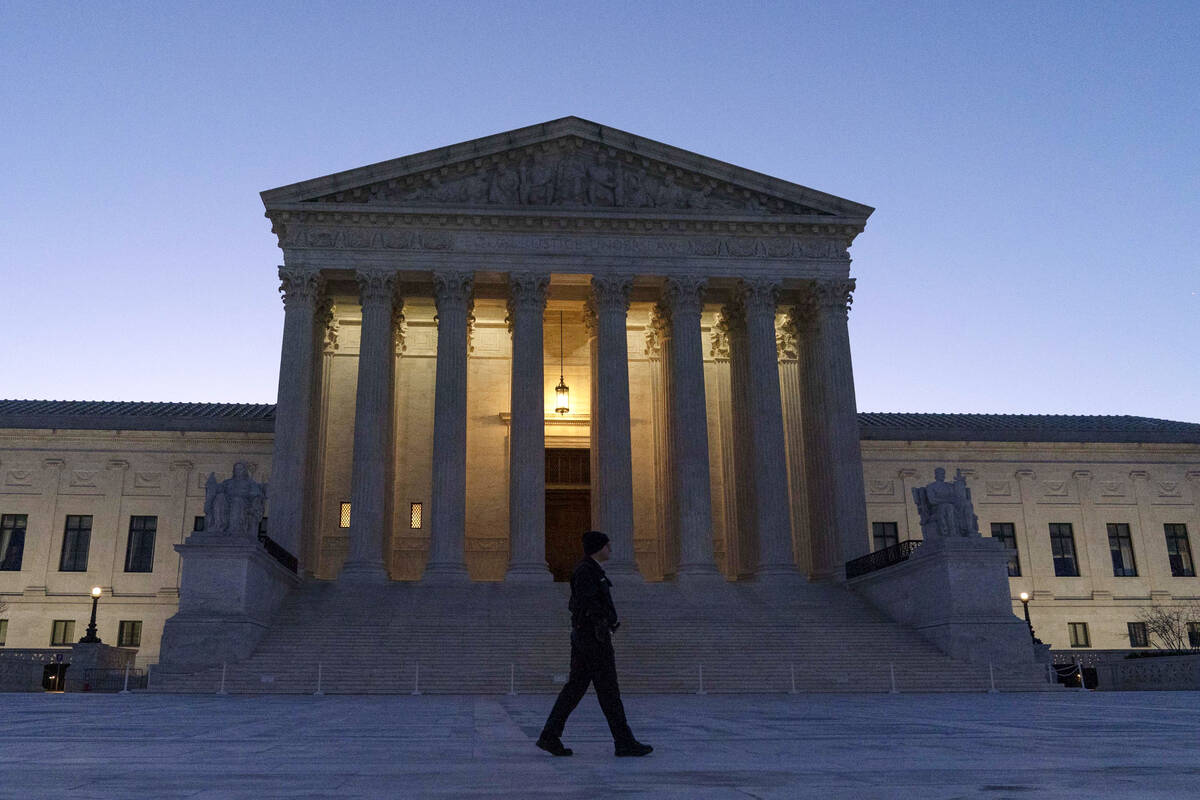COMMENTARY: Bureaucratic arrogance the downfall of administrative state
The Supreme Court has overturned a decades-old doctrine used to determine whether administrative agencies have abused their power. The doctrine, named after the 1984 case Chevron v. National Resources Defense Council, said that a court must defer to an agency’s interpretation of ambiguous statutory language so long as that interpretation is reasonable.
In practice, the “Chevron doctrine” has fueled explosive growth in the power of agencies such as the Environmental Protection Agency. The government is full of intelligent lawyers who can make apparently clear statutory language seem ambiguous. Those same lawyers then make “reasonable” arguments about why their interpretation should win out.
Courts cannot exercise judgment — they must defer to the agency. And that’s what happens typically. Private litigants face an uphill battle when challenging government abuse, and the Chevron doctrine gives an unfair advantage to the government.
Deferring to an agency’s interpretation of statutory language has helped the administrative state grow beyond anything our founders could have imagined. The Constitution assigns law-making power to the Congress. In theory, government agencies can exercise only those powers Congress has given them. In reality, agencies promulgate regulations without considering whether Congress has given them the authority to act — they grab power.
But those days are ending, and those who revere the administrative state have only themselves to blame. Regulatory excess has spurred six justices on the Supreme Court (who all recognize the importance of ensuring separation of powers) to level the playing field.
The EPA tried to remake how our nation generates electricity three years ago. Bureaucrats planned to phase out all coal-burning power plants in favor of renewable sources. There were several problems with the EPA’s plan: The costs to shift to power generation would total hundreds of billions of dollars, and Congress had never said the EPA could impose those costs on the American taxpayer. In striking down the action, the Supreme Court said an agency could decide only “major questions” such as this if Congress had explicitly authorized the agency to act.
Last year, President Joe Biden (using the Department of Education) tried forgiving $450 billion in student debt using a law passed 20 years ago that was designed to help alleviate student loan obligations for servicemen and women deployed overseas. The court said the president couldn’t contort the law to include debt forgiveness for students who never served in the armed services and voluntarily took on hundreds of thousands of dollars in debt.
The case that triggered the revocation of the Chevron doctrine (Loper v. Raimondo) involves the National Marine Fisheries Service’s authority to order small fishermen to pay the salaries of federal monitors. Congress has never said that the marine service can do this — in fact, the law is entirely silent on whether the agency can impose costs on fisheries. No matter, the agency still thought it could have its way.
Fortunately, the fishermen brought their case before a Supreme Court that gave them a fair shake. Chief Justice John Roberts, writing for a 6-3 majority, noted that the court has recognized that “it remains the responsibility of the court to decide whether the law means what the agency says.”
Administrative agencies are constantly agitating for new powers. They have been allowed to wield enormous power for years, and private parties have little recourse. But those days are ending. By overturning the Chevron doctrine, federal courts are now permitted to fairly adjudicate challenges to excessive agency actions. In the words of the majority, the Framers “expected that the courts would resolve (statutory ambiguities) by exercising their legal judgment.”
Those who blame conservatives for the repudiation of the Chevron doctrine should look in the mirror. The consistent abuse of regulatory authority has provided the opportunity to rein in the power of federal agencies. If agencies stayed in their lanes, the Supreme Court couldn’t act. However, with cases such as Loper v. Raimondo finding their way to the Supreme Court, the days of the all-powerful administrative state are ending. The only question is whether the administration will respect the court’s decision or continue to release burdensome regulations far exceeding agency authority.
Michael O’Neill is vice president of legal affairs at Landmark Legal Foundation. He wrote this for InsideSources.com.






















